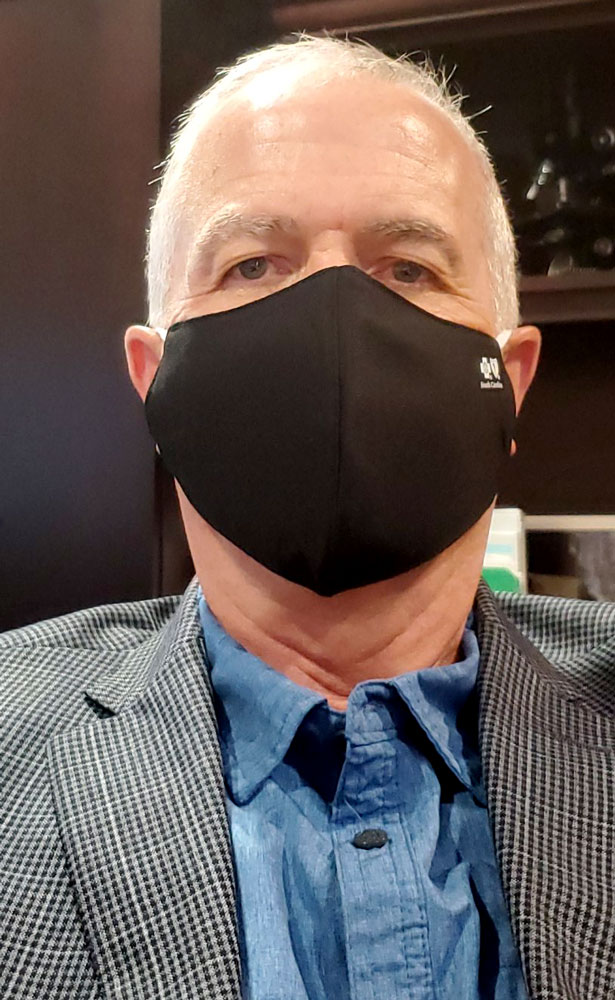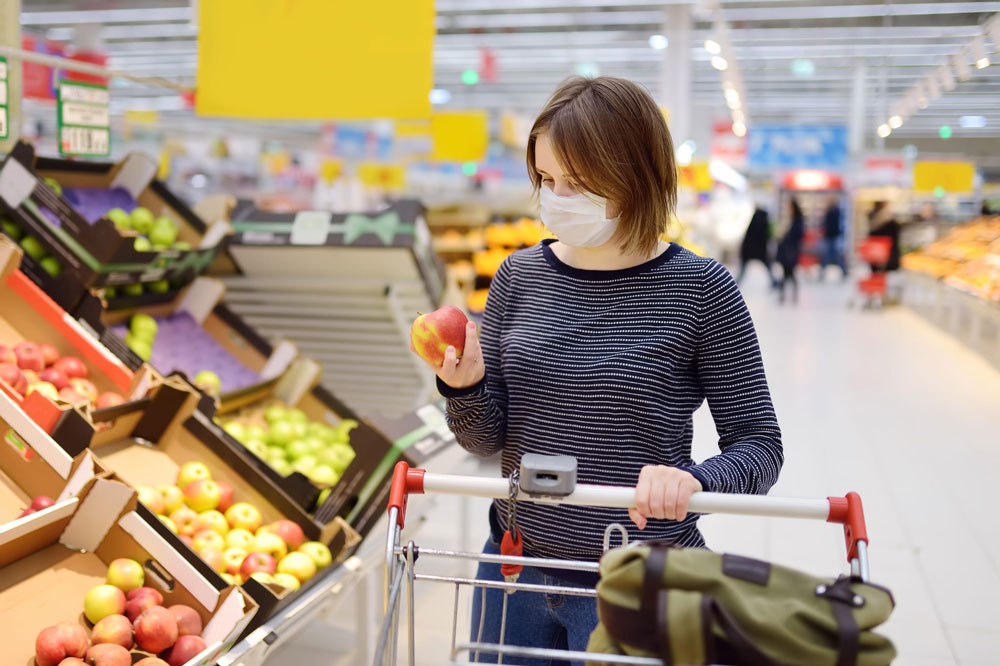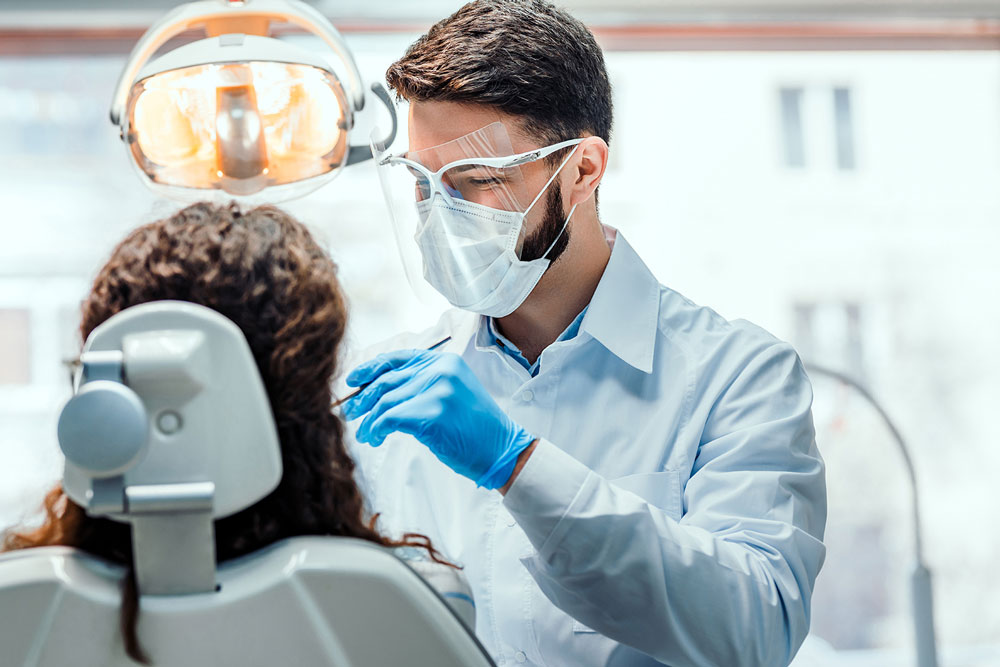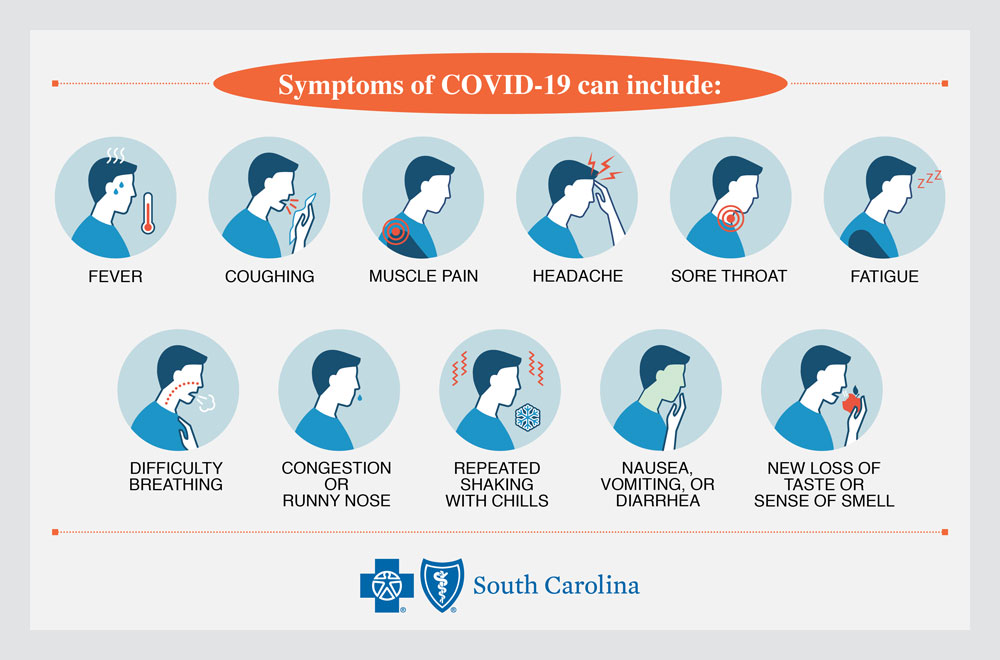A Primary Care Doctor on COVID-19: What to Know
Aug. 13, 2020
The coronavirus pandemic has raised dozens of questions. We spoke with one of BlueCross BlueShield of South Carolina’s doctors to get answers to some common questions.
Dr. Shawn Stinson, senior vice president for Healthcare Innovation and Improvement, worked as a primary care physician (PCP) for many years before coming to BlueCross.
“One of the most common questions I get asked: Is this real? And I get it. There’s so much misinformation out there. The sad reality is that over 1,500 of our neighbors in South Carolina have already died and the death toll continues to grow,” he says.
As of publication, 2,048 South Carolinians have died from COVID-19. The state has confirmed more than 100,000 cases of the disease.
“It is really important for all of us to practice safe behaviors. Not only are we as individuals interested in protecting ourselves, but our behaviors either protect or put others at risk,” Stinson says. “I know we are all weary and are ready for this to be over. But it is just not the time to lessen our resistance based on the data that we are seeing.”

Are There Any New Symptoms of COVID-19?
To stay updated on the virus, be sure to look at the Centers for Disease Control and Prevention’s (CDC) website. People with COVID-19 have had a variety of symptoms, which appear two to 14 days after exposure. These symptoms may be mild or severe. The current known symptoms are:
- Fever or chills
- Cough
- Shortness of breath or difficulty breathing
- Fatigue
- Muscle or body aches
- Headache
- New loss of senses of taste or smell
- Sore throat
- Congestion or runny nose
- Nausea or vomiting
- Diarrhea
This list does not include all possible symptoms. The CDC continues to update its list of symptoms as necessary.
What to Know About Medical Treatment
Is it safe to go to a doctor’s office right now?
In most places it is safe to go to the doctor right now. Most providers offices have implemented additional procedures like temperature checks and screenings. They will typically have mask requirements and appropriate social distancing procedures as well for waiting rooms.
If I have a scheduled screening, test or surgery, should I go?
Now there are so many precautions being taken by providers that there is a growing comfort level. If there is not a pressing need for a procedure, you can talk to your doctor about waiting. However, people putting off preventive care like mammograms or colonoscopies are potentially delaying the diagnoses of the conditions they are meant to uncover: breast cancer and colon cancer.
Is there a chance the hospital or facility will cancel my procedure? What are my options if it's canceled? Can I have the procedure somewhere else?
If your procedure is canceled, it is likely for a good reason. There is more concern about urgent procedures – procedures or tests that were felt to be okay to postpone for a while but still are needed to address important medical concerns. Your doctor can help you make the decision as to whether or not it is safe to delay a scheduled procedure.
If I get COVID-19, will it affect the outlook of my chronic disease?
We don’t know. What we do know is that the presence of many chronic diseases worsens your outcome of COVID-19 infection. If you have diabetes, obesity, hypertension or lung disease, your likelihood of having a more complicated infection is increased.
Are there long-term effects of COVID-19?
It hasn’t been around long enough for us to know. There are some delayed effects, like multisystem inflammatory syndrome in children, that happen during the recovery phase. Some of the bigger complications of COVID-19 infections are blood clots, which can cause heart attacks and strokes. Those things have long-lasting effects. There are reports of some individuals having active COVID-19 infections for weeks or even months in rare cases.
What to Know About Masks
What is the best way to protect myself from the virus?
Maintaining social distancing is the best way to protect yourself from COVID-19. If you are around anyone who could potentially be infected, you should stay at least 6 feet away. Avoid high risk areas in which social distancing cannot be assured, or anywhere there is a crowd. Wear a mask.
What is the proper way to wear a mask?
A cloth face covering should cover both the mouth and nose. It shouldn’t be worn under the nose, as I often see people wearing them. When you wear it, don’t touch the outside of the mask. It is best to replace or wash the mask after each use.
Are masks or cloth face coverings safe?
There is a concern by some that masks are harmful. A cloth or surgical mask is safe for the vast majority of people. Some people have been excluded from the recommendation for cloth face covering including children younger than 2 years old, anyone who has trouble breathing and anyone who is unconscious, incapacitated or otherwise unable to remove a mask without assistance. If someone cannot tolerate wearing a mask, they shouldn’t be out. Kids under 2 shouldn’t wear masks, especially if they are not being watched.
What to Know About Testing
When should I get tested?
If you are concerned that you have the virus, meaning you are showing symptoms, you should get tested. Find more about what you should do if you are sick here.
If I need to get a test, should I go to my doctor’s office?
You do not have to. There are many testing sites across the state each day. You can find where the nearest test site is on the South Carolina Department of Health and Environmental Control’s (DHEC) website. Some of the testing sites require an assessment ahead of time. This can be as simple as a questionnaire. If you have symptoms, you should contact your doctor to find out where you should get tested. For insurance coverage, testing needs to be ordered by a provider in the context of evaluation of a possible active infection.
Should I get an antibody test?
We don’t know a lot about the significance of having COVID-19 antibodies. One of the most important unknowns is whether or not the presence of antibodies means that the person is immune to another COVID-19 infection; another is how long this protection might last. I have little doubt that these questions will be answered, but for now we just don’t know.
Find more information about COVID-19 here and keep up-to-date on with information from the CDC.
 Children and Covid-19: What to Know
Children and Covid-19: What to Know
There may be a lot of unknowns with novel coronavirus, but BlueCross’ Dr. Matt Bartels, vice president and chief medical officer, provides some answers to common questions parents may have about the pandemic’s effect on children.
Read More Safety Tips for Getting Out During Re-Opening
Safety Tips for Getting Out During Re-Opening
At some point in the past couple of months you’ve probably searched online for answers to all kinds of questions about what is or is not safe during the pandemic. As South Carolina moves to re-open many businesses, BlueCross pulled together some resources to help South Carolinians determine what is best for their families.
Read More What Your Dentist Wants You to Know About Dental Care During the Pandemic
What Your Dentist Wants You to Know About Dental Care During the Pandemic
As many businesses and daily activities reopen, many South Carolinians may be rescheduling missed dental appointments or planning for upcoming trips to the dentist. President of the South Carolina Dental Association provides insight into dental care during the pandemic.
Read MoreRelated Reading:





















